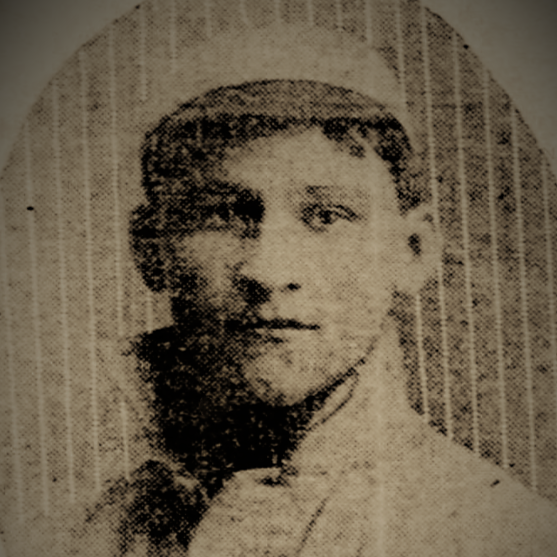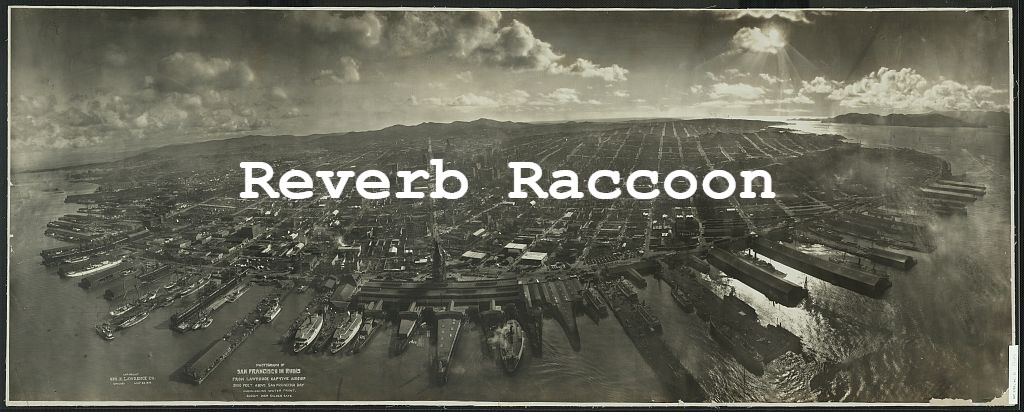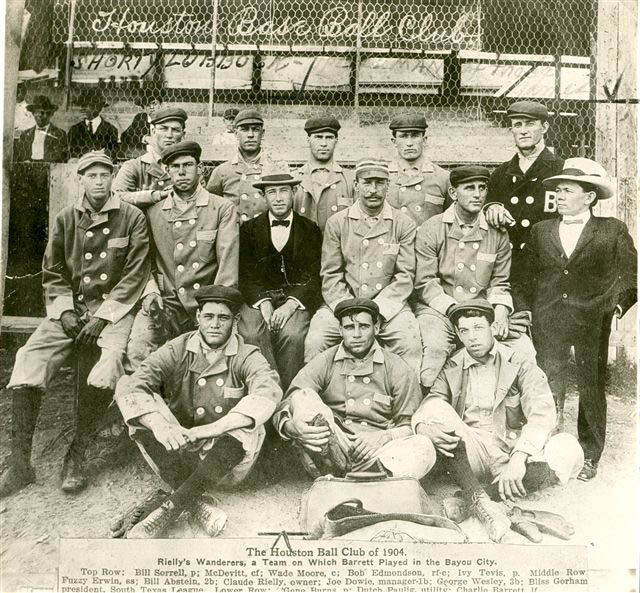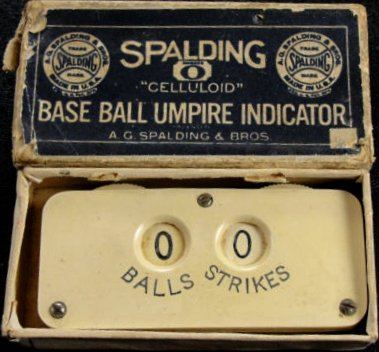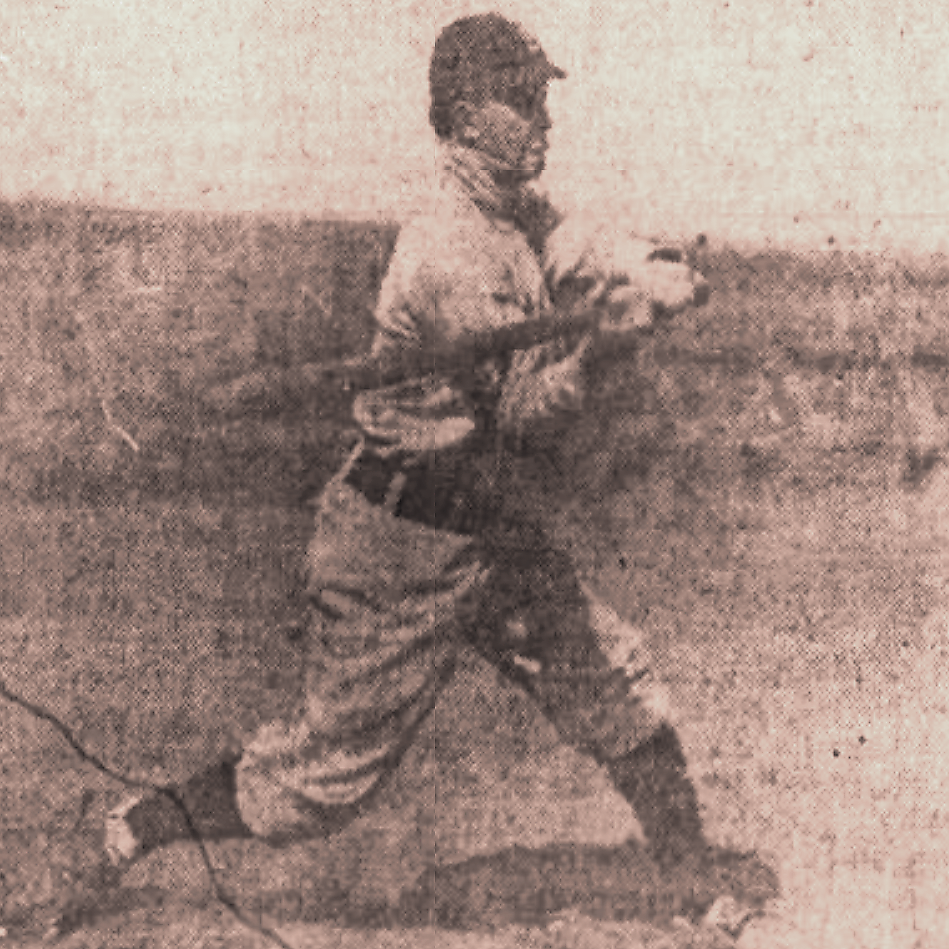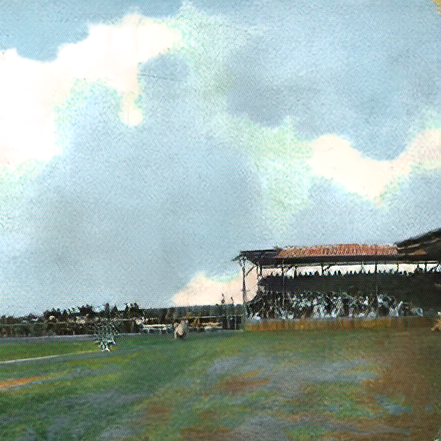Anderson
Once more baseball is here. In every city and hamlet in the land eager “fans” can hardly wait for the results of the day’s games. On every vacant lot in the United States future baseball stars are quarreling over the weighty decisions of a young umpire. With increasing popularity, the National game begins another season and there is every reason to believe that this year will eclipse all others.
– Richmond (Indiana) Palladium, April 16, 1906
Anderson, Indiana, frames a kink in the north fork of the White River, where it joins Killbuck Creek. In the alluvial deposits that line the stream beds, one finds the remnants of rocks uprooted by the glaciers of the last Ice Age. When those glaciers retreated, they left behind the silty soils of the Miami Clay Loam, a loose gray dirt that spreads out from Anderson in gentle undulations for miles and miles in each direction, creating a vast plain of farmland.
The farmers around Anderson rotated their crops: two years each of corn, wheat, and hay. The acreage would then be left fallow for three or four seasons. In those empty fields, a boy could take a baseball bat and scratch out a diamond in the dirt even before the last killing frost of mid-April.
On March 30, 1887, drillers discovered natural gas in the Trenton Limestone beneath Anderson. The town’s population doubled, then doubled again. When the boom-seekers arrived in Anderson, many lost their Friday pay to Jim Corbett, a saloon keeper and card shark.
He was the son of Patrick and Mary Corbett, both born in Ireland around 1820. Patrick was a laborer and farmer. Between 1847 and 1861, he and Mary had five children that survived to adulthood. Their birth dates are uncertain (the genealogical sources disagree) , but the locations of their births trace the route of the family’s western migration: Jim in Pennsylvania, Hanora and Mary in Kentucky, Philip and Patrick in Indiana.
Jim Corbett stood 6’1” with blue eyes, brown hair, and a fair complexion. He enlisted in the army on July 30, 1866, in Indianapolis, giving his age as 18. Assigned to the 2nd Battalion, 11th US Infantry, he spent most of his days on provost duty in Richmond, Virginia. He was discharged on January 13, 1867 “for disability.” He may have fallen to the cholera epidemic that decimated the regiment.
Returning to Indiana, Corbett found work at the New Albany Glass Works and played on the company cricket team. The disability that spurred his army discharge must not have been totally debilitating (though he was granted a military pension as an Invalid in 1887, indicating he could not perform physical labor).
In 1879, Corbett obtained a license to sell liquor in New Albany. Two years later, he opened his saloon on Anderson’s Main Street.
Jim married Mary Violet (or Violett) on October 17, 1882. She was an Ohio girl, thirteen years younger than her husband. John Philip Corbett, later known as “Jack,” was born on August 2, 1887, five months after the gas discovery in Anderson. The birth occurred in Columbus, Ohio, where Mary’s parents lived. The 1887 Columbus directory lists the occupation of her father, Justice Sampson Violet, as “peddler.”
Corbett’s saloon succeeded, but he made most of his money at the card table.
“Jim was a gambler by profession, and was not ashamed of it,” a writer for the Muncie Morning News recalled. “He was known as a quiet, genial fellow, with a quick wit and dry humor that made him a most agreeable companion. As a gambler he had a reputation as one of the most proficient, and at the same time square, card men in the country.”
The game was not always “square.” Two months after Corbett’s wedding, a traveler passing through Anderson dropped into the saloon for a drink. Corbett invited the man to a private room upstairs, served him at least a dozen slugs of whiskey, and relieved him of $375 in a poker game.
Corbett always carried a large amount of cash. In 1893, someone crept into his house while the family slept and removed $1100 – equal to over $37,000 in today’s money – from Corbett’s pants pocket.
Jim Corbett died of pneumonia in the winter of 1894 at age 46, leaving behind his wife and four children. John was 6 years old when his father died; his mother was 33.
Reporting on Jim’s death, the Logansport Weekly Pharos said, “He had accumulated a fortune.” The Muncie Daily Herald described the Corbett home on Anderson’s Ohio Avenue as “elegant” and “one of the handsomest residences in the city.”
The rumored fortune may have been a chimera. Six years after Corbett’s death, his family lived in a rented house on West 8th Street. They shared the property with a harness maker. Mary Corbett supported her family by working as a corsets saleswoman in Weslow’s department store.
The locals later remembered that Johnny Corbett, as he was known around Anderson, began playing semi-pro baseball when he was fifteen years old.
John Corbett stood just over five feet, nine inches tall and weighed between 160 and 170 pounds in his prime. His brown eyes were close-set. In some photographs, one eye appears to turn slightly inward, which would have reduced his depth perception and hindered his hitting.
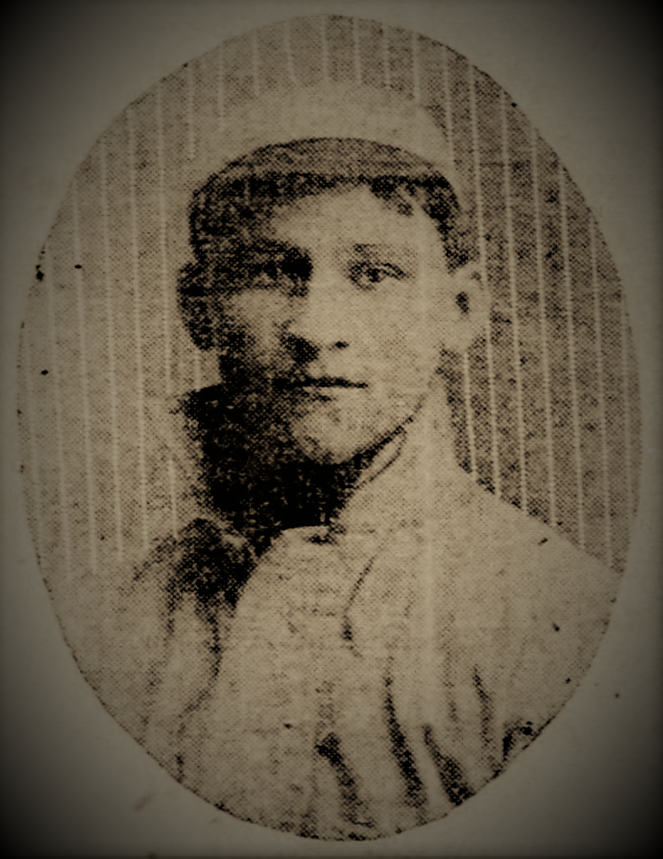 Johnny Corbett, date unknown. Richmond Palladium and Sun Telegram, January 20, 1912.
Johnny Corbett, date unknown. Richmond Palladium and Sun Telegram, January 20, 1912.
The Fort Wayne Railroaders of the Class C Interstate Association offered Corbett a pre-season tryout in 1906. He failed the audition and started the season in semi-pro.
In mid-June, Corbett played third base and shortstop for a Sunday League team in Alexandria and was the team’s on-field captain.
Alexandria took down the Marion Owls 10-9 in an eleven-inning contest on June 17 as Corbett, batting third, socked a triple and scored two runs. Word of Corbett’s work with Alexandria reached the ears of Peaches O’Neill, the new player-manager of the Class C Interstate Association’s Anderson club.
Born in Anderson and destined to die there, O’Neill was a catcher, outfielder, and practicing lawyer who had enjoyed the requisite cup of coffee in the majors back in ‘04, appearing in eight games with the Cincinnati Reds. He was named player-manager of the Anderson team on June 15. O’Neill signed Corbett a few days later.
Like most teams Corbett played for, Anderson was on the financial ropes. The club was in dire need of cash, and O’Neill was named manager after he purchased $400 worth of the club’s stock.
John Corbett, 18 years old, broke into professional baseball with Anderson on Saturday, June 23, 1906, in a road game against the Fort Wayne Railroaders. Leading off and playing shortstop, Corbett went 0-for-4, scored no runs, and recorded a putout, an assist, and an error. Anderson lost 1-8.
Corbett dropped to the seventh slot in the order the following day as Anderson faced Fort Wayne in a doubleheader. The first game, lost by Anderson 4-6, was another oh-fer for the young shortstop. In the field, he made three putouts and an error. He recovered in the second game, smacking a single and a double, scoring a run, and tallying three putouts with no errors. It wasn’t enough as Anderson again lost, 4-7.
O’Neill’s team was back in Anderson Monday morning for a game against the Flint Vehics. The train from Michigan arrived late, and the game was canceled.
Tuesday brought disaster for Corbett. With Anderson leading 3-1 in the top of the second, he took a grounder but overthrew first, allowing three runs to score. O’Neill immediately banished Corbett from the field and the team.
It was a humiliating end to Corbett’s first entry into professional baseball. But ten years later, as player-manager of the Asheville Tourists, he repeated the stunt, pulling his starting pitcher in the second inning and handing the man his unconditional release on the spot.
Corbett left the Interstate Association bearing two hits in twelve at-bats for a .189 average. It would not be Corbett’s final failure in Class C ball. He returned to the semi-pro ranks, playing shortstop for the Marion Owls.
Willis Wilson McDonnell – usually spelled McDonald in the newspapers – owned the O.K. Café, a short-order lunch counter in Upland, a small town about 12 miles southeast of Marion. He played on the Upland town football team and managed the Upland Greens, a fast semi-pro baseball team.
In mid-season 1906, McDonnell set out to form a new team. He took out a two-year lease on Lake Park, the ball grounds beside Winchester’s Funk Lake. His team would play in Winchester on Sundays and tour eastern Indiana during the week, taking on all comers. McDonnell persuaded 150 of Winchester’s more gullible citizens to support his endeavor with a weekly donation.
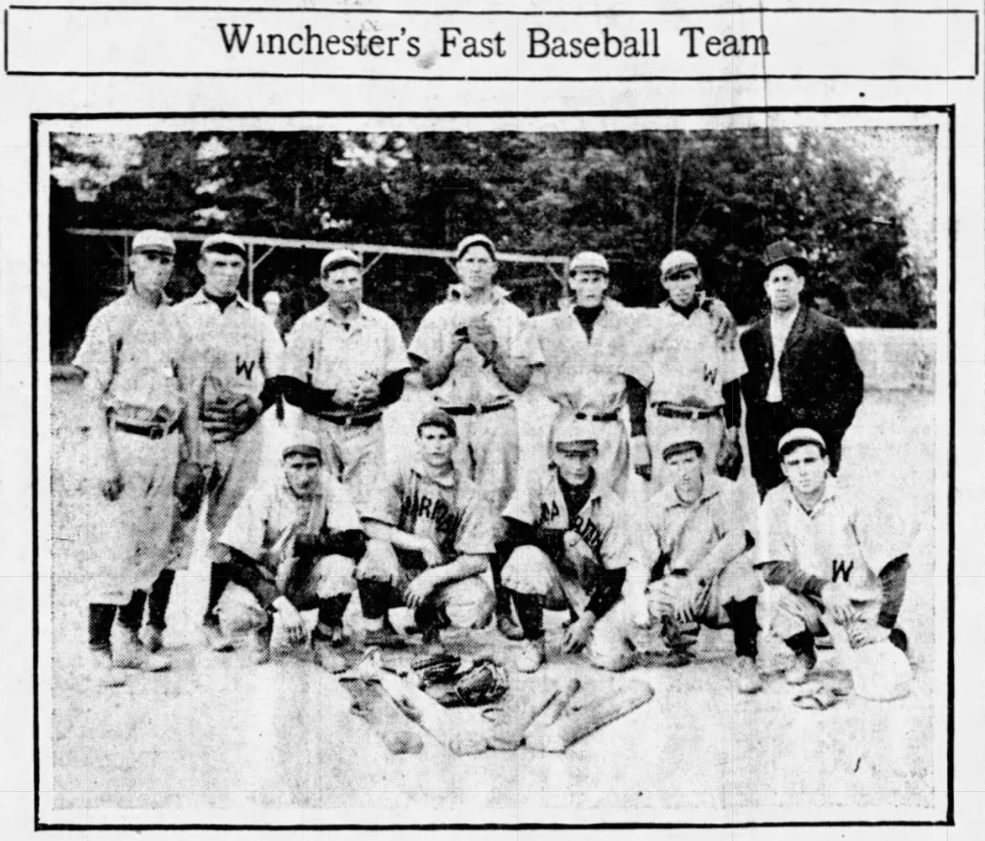 Wilson McDonnell’s semi-pro team. McDonnell is on the back row, far right. Corbett is on the front row, far left. Muncie Star Press, August 22, 1906.
Wilson McDonnell’s semi-pro team. McDonnell is on the back row, far right. Corbett is on the front row, far left. Muncie Star Press, August 22, 1906.
McDonnell hired Corbett, still a few weeks shy of 19, to play shortstop and act as his assistant. He unveiled his creation on July 15. In a team photo published a month later, McDonnell appears ridiculous in the top hat and tails of an impresario or a maître d’.
Center fielder Patty Gorman, standing beside McDonnell, was a classically trained singer scheduled to go on tour with an opera company after the season. Right fielder Aime Delporte, a 42-year-old Belgian-born glassblower, crouches before McDonnell. Delporte arrived in the New World when he was 26. He took to the national pastime and became a mainstay of the eastern Indiana semi-pro circuit.
Corbett crouches at the left end of the front row. In the middle of the front row are catcher Charles Gunion and a pitcher named Taylor. They had, like Corbett, played with the Marion Owls. In the team photo, they are still wearing their Marion jerseys.
McDonnell advertised his aggregation as “one of the fastest independent teams in the state.” The roster, he said, comprised “talented, gentlemanly players.” The men were on a straight salary. Teams visiting Winchester would receive travel expenses and 50 percent of the Lake Park gate, which comprised between 900 and 1300 fans each Sunday afternoon.
Winchester defeated Muncie’s Southside Athletic Club 1-0 in their inaugural game. The writer for the Winchester Journal deemed the score “satisfactory to the most enthusiastic fan… A game with a score like that could not but be interesting.”
The following Wednesday found McDonnell’s team in Farmland, from which they again traveled home with a victory. Our man at the Journal, who would have thoroughly enjoyed the 1968 season, said, “It was an interesting game from start to finish as the score 2-0 in favor of Winchester testifies.”
Over the last two weeks of July, the team compiled a 4-2 record. They were perfect in their home park but lost road games to Portland 0-10 and Muncie 12-15.
After the game in Muncie, the rumor mill said McDonnell’s team had disbanded. McDonnell had skipped town without paying his bills or paying his players. Some players approached the Muncie management in hopes of jumping sides.
The reports of the team’s demise proved premature: McDonnell paid off his players and his bills the next day, and the club continued to schedule games.
The Winchester crew arrived in Geneva on August 14 for a game against the local team. The players had just taken the field when a stray spark from a Grand Rapids and Indiana Railroad engine ignited a fire in a hay barn. Everyone at the game – spectators, players, and the umpire – hightailed it to the scene and organized a bucket brigade.
The fire threatened to consume the entire north end of Geneva. “It was only by the hardest kind of work by the bucket brigade that the flames were checked,” the Muncie Star Press reported. The fire destroyed two large barns and a residence and badly damaged several houses.
The Star Press judged the Winchester team’s contribution more than adequate: “The visitors from Randolph County certainly did themselves proud as fire fighters, although they did not get a chance to show their mettle on the diamond.”
On August 27, Winchester completed a three-game sweep of Union City to give McDonnell’s team a 13-4 record. It was downhill from there as they lost five of their next six games, including three losses to the Portland team that had earlier defeated them 0-10. Winchester played its final game on Sunday, September 9: a 1-2 loss to the Indianapolis Metropolitans at Lake Park. Their final record: 14 wins and 9 losses.
McDonnell abandoned his team after the game, telling the players that business matters elsewhere required his attention. The team was busted, the players were unpaid, and McDonnell had debts all over Winchester. He left 19-year-old Jack Corbett in charge.
Monday morning, as the other players departed for their homes, Corbett went around Winchester and tried to pry one last weekly donation from the team’s subscribers. He gave the money to the club’s treasurer.
Corbett caught the cars to Anderson that evening. “He was kind enough to send a note back,” the Muncie Evening Press recounted, “saying that he had enough to take him home, with 25 cents to the good.”

